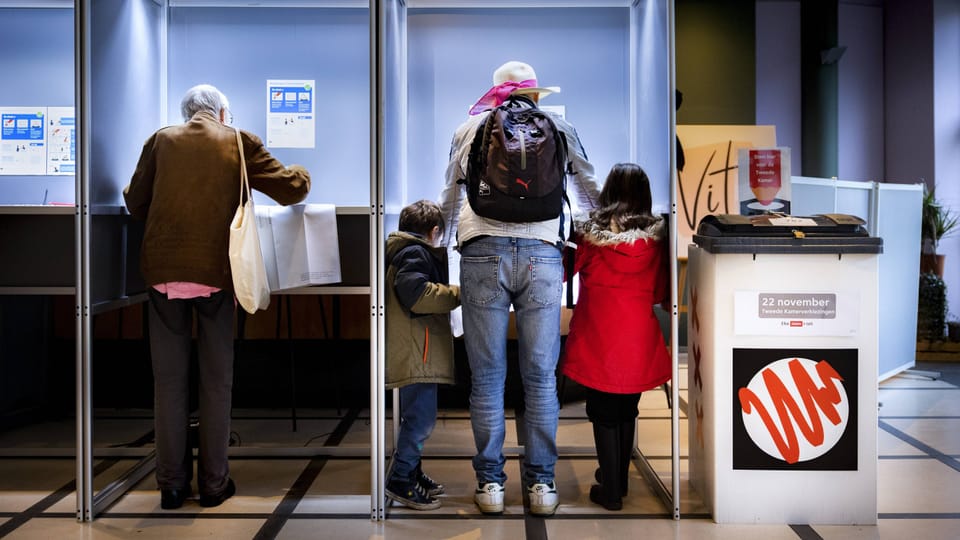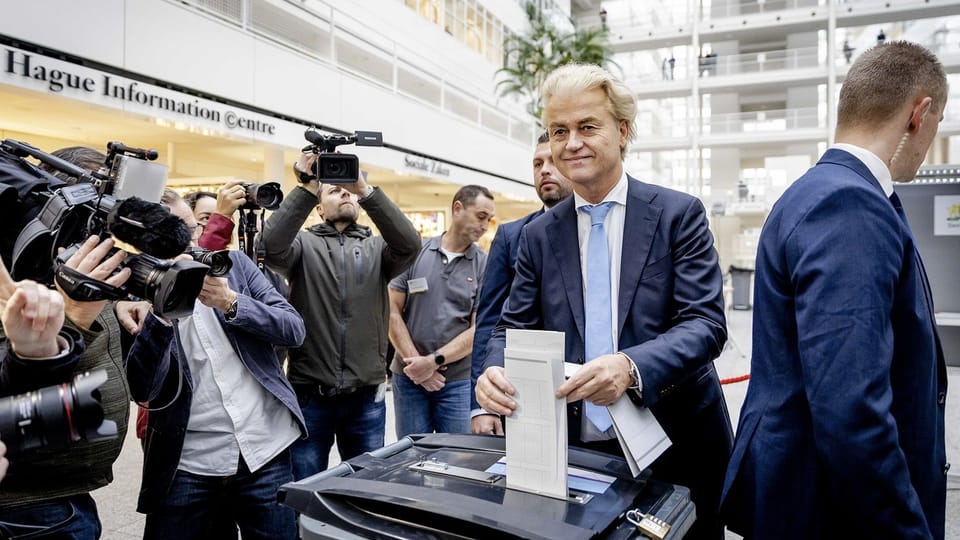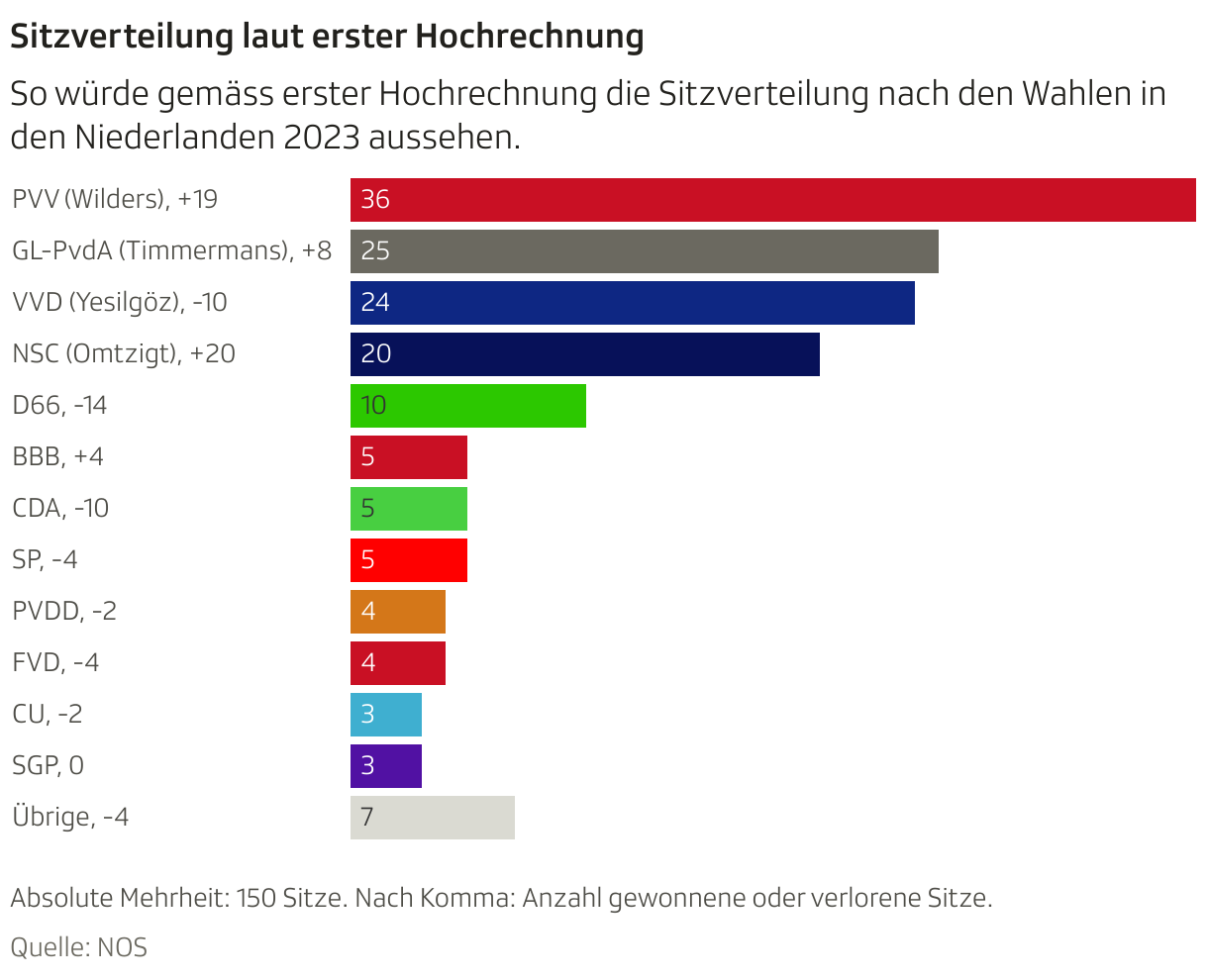- The Netherlands has voted. According to forecasts and initial projections, the party of right-wing populist Geert Wilders (PVV) will emerge from the parliamentary elections as the strongest force.
- According to the forecast, Wilders can hope for 35, and according to the first projection, even 36 of the 150 seats in parliament. Shortly after the forecast, he confirmed that he wanted to take over the government.
- If these numbers are confirmed, it would be the first time that a right-wing populist party has won a Dutch parliamentary election.
After his expected victory, Geert Wilders has reiterated his determination to take over the government. “The PVV wants to work with other parties, and that means that all parties – including ours – have to jump over their shadow,” said Wilders after the publication of the first election forecast in The Hague. «We want to govern. And we will also govern with 35 seats.”
Legend:
The right-wing populist Geert Wilders casting his vote in The Hague.
Keystone / REMKO DE WAAL
Wilders’ PVV had continued to rise in the polls in recent weeks. The right-wing Liberals’ top candidate, Dilan Yesilgöz, said at the start of the election campaign that she would not rule out Wilders as a coalition partner from the outset. The outgoing Prime Minister Mark Rutte, also a right-wing liberal, had always refused to work with Wilders.
The 60-year-old Wilders wants, among other things, to close all mosques and ban the Koran. During the election campaign, however, he struck a more moderate tone and said that the fight against Islam was not a priority at the moment. Instead, he wants to close the borders to asylum seekers.
According to an initial projection, Yesilgöz and Rutte’s party, the right-wing liberal People’s Party for Freedom and Democracy (VVD), has 24 seats, a loss of eleven mandates. The alliance of the Greens and Social Democrats (GL-PvdA), led by former EU Commissioner Frans Timmermans, creates 25 seats, an increase of nine. Former Christian Democrat Pieter Omtzigt’s party, the New Social Contract (NSC), which was founded just a few weeks ago, can expect 20 seats.

Legend:
Polling offices like this one in Amsterdam have been closed since 9 p.m.
IMAGO/ANP
The early parliamentary election became necessary after Rutte’s center-right coalition collapsed in the summer after just 18 months in office. The reason for this was a dispute over migration policy. Rutte, the longest-serving Prime Minister in Dutch history, then announced his departure from national politics and now wants to become NATO Secretary General. However, he will remain in office until a new government takes office. A good 13 million people were called to vote in the election on Wednesday.
The election is marked by a major crisis of trust. Less than half of the Dutch still have trust in politics, according to a study by the Social-Cultural Research Institute. Over 60 percent are dissatisfied with how their country is run. Many citizens attest that the state and politicians have failed in migration, the healthcare system, housing and social security.

